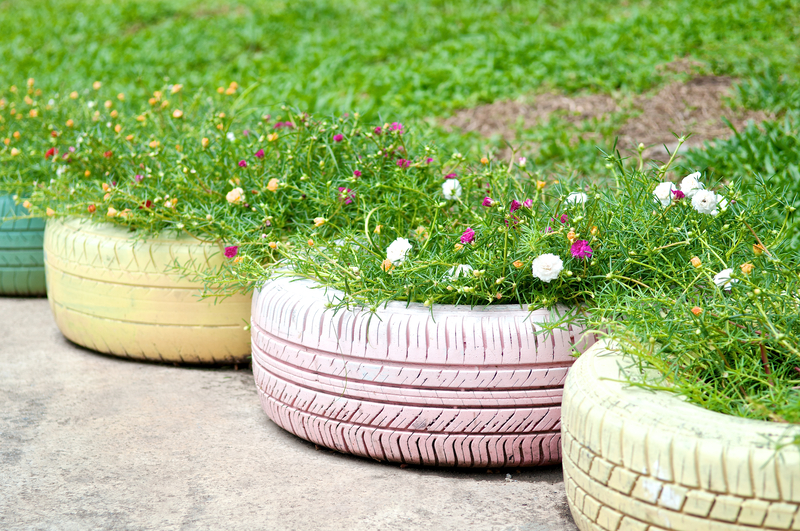Waste Minimization Strategies for Chefs
Posted on 09/06/2025
In the modern culinary world, waste minimization has become a critical focus for chefs and kitchen managers. More than just an eco-friendly buzzword, minimizing waste can lead to cost savings, improved efficiency, and greater sustainability. Here, we explore comprehensive waste minimization strategies tailored specifically for chefs and culinary professionals.
Understanding Food Waste
Food waste refers to any edible food that goes unused and is discarded. This waste can occur at various stages, including production, handling, storage, preparation, and consumption. According to the Food and Agriculture Organization (FAO), approximately one-third of all food produced globally is wasted, contributing to environmental degradation and economic loss.

Implementing Waste Audits
Before embarking on a waste reduction journey, conducting a thorough waste audit is essential. A waste audit involves systematically tracking and analyzing the type and amount of waste generated in a kitchen. This data serves as a foundation for targeted waste reduction strategies.
Effective Menu Planning
Menu planning plays a crucial role in minimizing waste:
- Seasonal Ingredients: Choose seasonal and local ingredients to ensure freshness and reduce the likelihood of spoilage.
- Using Whole Ingredients: Design menu items that utilize entire ingredients, from root to leaf, to minimize discards.
- Portion Control: Standardize portion sizes to prevent over-preparation and excessive leftovers.
Inventory Management
Efficient inventory management can significantly reduce food waste:
- First-In, First-Out (FIFO): Adopting FIFO ensures older stock is used before newer inventory, reducing the risk of spoilage.
- Regular Stocktaking: Conduct regular inventory checks to monitor stock levels and avoid over-ordering.
- Purchase in Realistic Quantities: Match purchase quantities with actual consumption to prevent excess.
Creative Use of Leftovers
Repurposing leftovers into new dishes can not only minimize waste but also showcase culinary creativity:
- Soup and Stock: Use vegetable peels, meat bones, and other scraps to create flavorful broths and stocks.
- Daily Specials: Feature a "leftovers special" using excess ingredients in innovative ways.
- Ingredient Swaps: Incorporate surplus ingredients into existing recipes as substitutes.
Reducing Packaging Waste
Food packaging is a major contributor to kitchen waste. Chefs can adopt several strategies to minimize packaging waste:
- Bulk Purchasing: Buy ingredients in bulk to reduce individual packaging.
- Reusable Containers: Use reusable containers for storage instead of disposable packaging.
- Local Suppliers: Sourcing ingredients locally can reduce the packaging required for transport.
Composting and Recycling
Establishing composting and recycling systems can divert a significant amount of waste from landfills:
- Compost Food Scraps: Compost organic waste such as vegetable peels, coffee grounds, and eggshells.
- Separate Recyclables: Ensure paper, plastic, glass, and metal waste is sorted and sent to recycling facilities.
- Collaboration with Farms: Partner with local farms to use kitchen scraps as animal feed or compost.
Training Staff and Creating Awareness
Staff training and awareness are key components in minimizing waste:
- Regular Training: Conduct regular training sessions on waste reduction practices and the importance of sustainability.
- Incentivizing Waste Reduction: Implement reward systems for staff who actively contribute to waste minimization efforts.
- Raising Awareness: Display informational posters and reminders about waste reduction throughout the kitchen.
Leveraging Technology
Technology can be an invaluable ally in waste management:
- Inventory Software: Use software to track inventory, monitor stock levels, and reduce over-ordering.
- Waste Tracking Apps: Implement apps that track waste and provide insights into areas for improvement.
- Smart Kitchen Gadgets: Utilize smart scales, thermometers, and sensors to reduce waste through precision cooking and storage.

Partnering with Food Banks
Donating surplus food to local food banks and shelters ensures that excess food benefits those in need rather than being wasted:
- Regular Donations: Establish a regular schedule for food donations and build relationships with local charities.
- Adhering to Guidelines: Follow local health and safety regulations to ensure donated food is safe and appropriate for consumption.
Conclusion
Incorporating waste minimization strategies in the kitchen is not only an ethical responsibility but also a practical approach to reducing operational costs and enhancing sustainability. From menu planning and inventory management to creative use of leftovers and staff training, chefs have numerous tools at their disposal to combat waste. By fostering a culture of waste reduction, chefs can make a significant impact both inside and outside the kitchen.
Adopting these strategies benefits the environment, enhances the dining experience, and sets a positive example for the food industry as a whole. As the culinary landscape continues to evolve, waste minimization will undoubtedly play an increasingly crucial role in achieving a more sustainable and resource-efficient future.
Latest Posts
Planet-Friendly Disposal Strategies
House Waste Removal Made Easy: Top 5 Tools
Hard Rubbish: Identification & Disposal Tips





